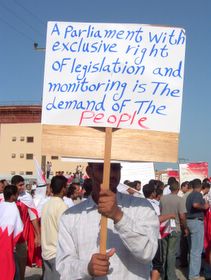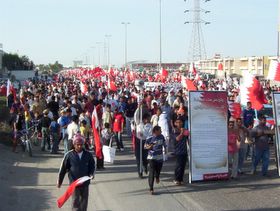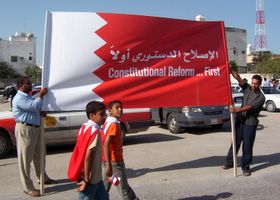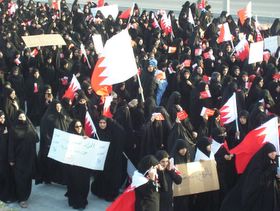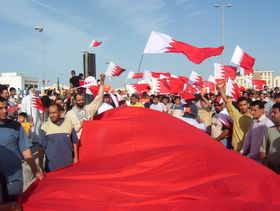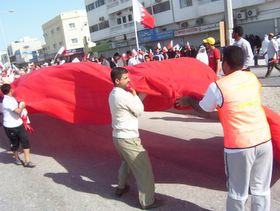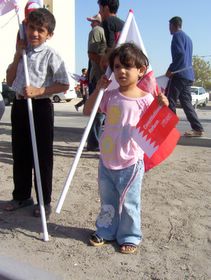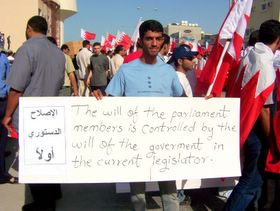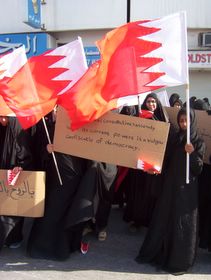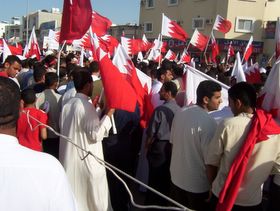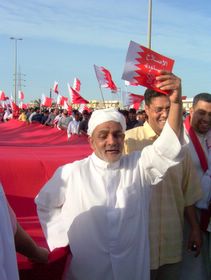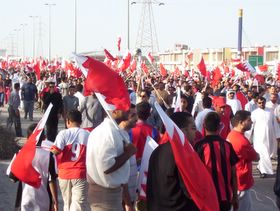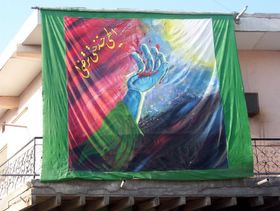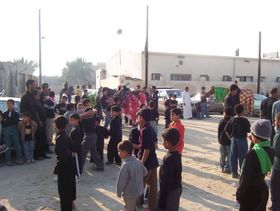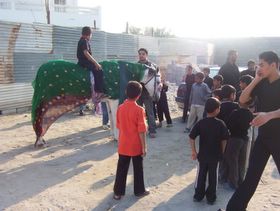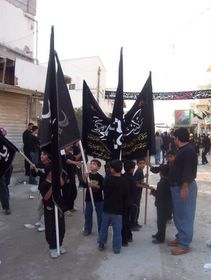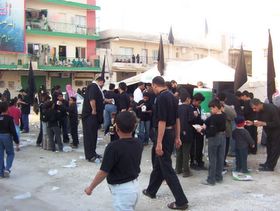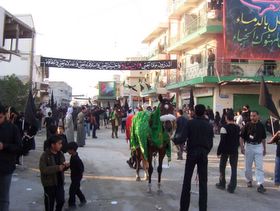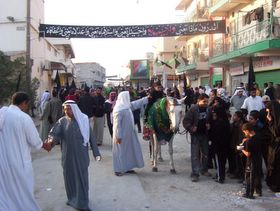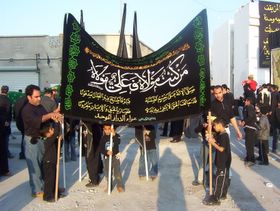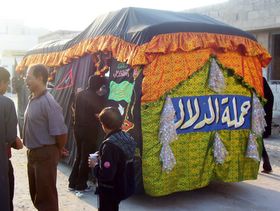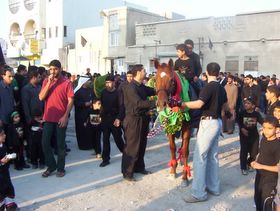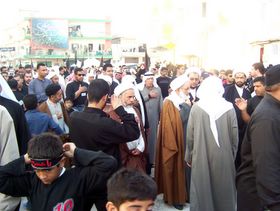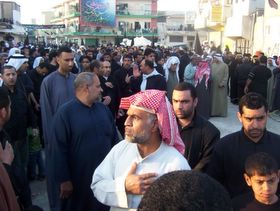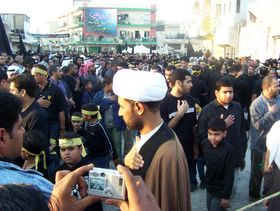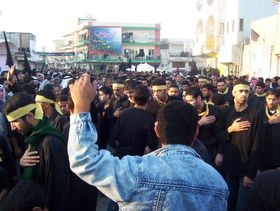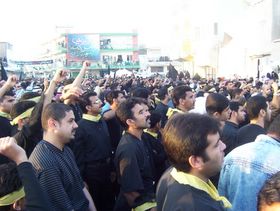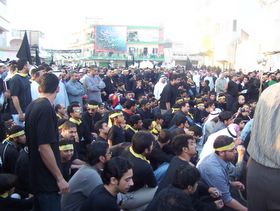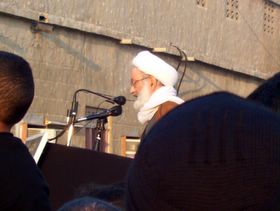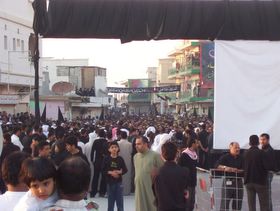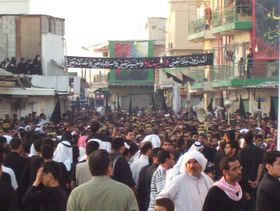Bahrain in the press
Thursday, March 31, 2005Washington Post article on the use of text messages by activists in the Gulf:
"My bill is going sky high," said Abduljalil Singace, foreign affairs director of Bahrain's Al-Wefaq National Islamic Society, the island emirate's largest opposition grouping, a Shiite Muslim movement that is noisily boycotting the country's three-year-old, limited parliament.
Singace was fired as an associate professor and department chair at Bahrain University in mid-March after he traveled twice to Washington to lobby against his country's royal government, a close U.S. ally. He said Bahrain's security services also told him to stop sending dissident text messages. The Bahrain government says Singace was discharged for neglecting his duties at the university.
"They warned me against text messaging on demonstrations," Singace said. Before the warning, he said, "I was not sure they were reading my text messages. Now I'm telling everyone."
Still, he remains proud of some of his compositions. When American management consultants issued a report recently about how Bahrain's government could accelerate reform of its free-trading economy, Singace whipped off a reply and paid a commercial service to distribute his message throughout the island.
"Economic reform without political reform is like a bird with only one wing," he wrote. "How can it fly?" (Continued)
And a very brief mention in the Christian Science Monitor about the demand for democracy in the Middle East:
In Bahrain last week, the largest protests in memory saw the country's politically disenfranchised Shiite majority saying enough to pro-American King Hamad bin Isa al-Khalifa's policies. (Continued)
I also stumbled across a full article about Bahrain from the World Socialist Web Site: American media silent over mass protest in Bahrain. It's quite sensationalized (typical of contemporary Leftist literature), but worth a read:
The hypocrisy of Washington’s self-proclaimed crusade for democracy in the Middle East found damning expression this week in the nearly total silence of the US government and the American media over a demonstration that brought tens of thousands of protesters into the streets of Bahrain last Friday demanding democratic reforms.
The contrast between the reaction to this popular upsurge against a dictatorial monarch in the Persian Gulf and the attention lavished on the so-called “Cedar Revolution” in Lebanon could not have been starker. (Continued)



